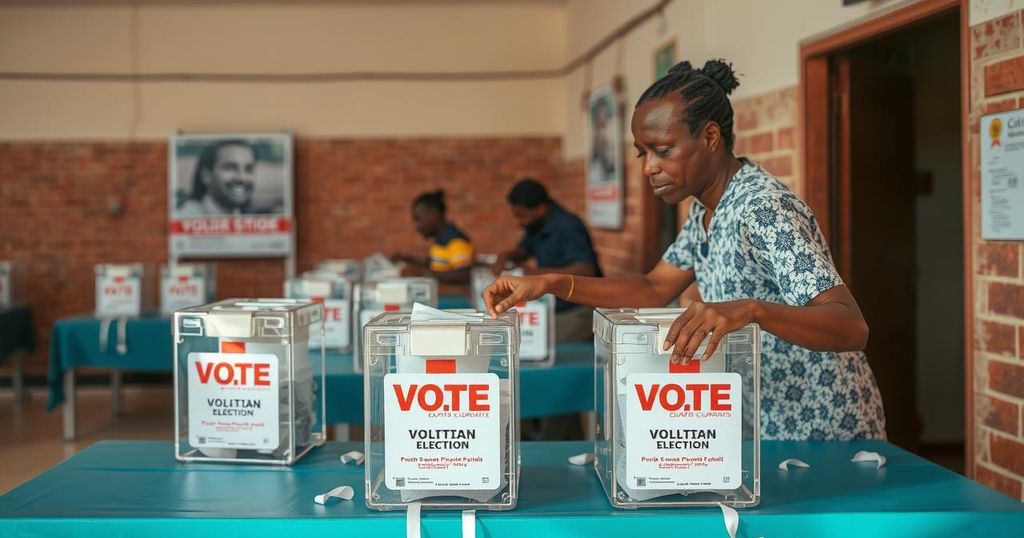Chad Engages in Controversial Parliamentary Election Amid Opposition Boycott
Chad is holding its first parliamentary election in 13 years amidst a boycott by the opposition, who claim the election results are predetermined. Low voter turnout has been observed in the capital, and widespread allegations of fraud are being reported. The elections are deemed crucial for transitioning from military rule, but challenges such as security concerns and economic hardship persist.
Voting is currently underway in Chad during its first parliamentary election in 13 years, a critical event positioned by the government as a significant move towards democracy following military rule. Voters have the opportunity to elect a new parliament, provincial assemblies, and local councils, amidst a notable boycott initiated by opposition entities who argue the election is rigged. Consequently, voter turnout has been reported as low in the capital N’Djamena, with officials attributing the lack of participation to adverse weather conditions.
The electoral process unfolds against a backdrop of political tension, with opposition parties urging Chad’s eight million registered voters to abstain from participating in elections they deem predetermined. This boycott benefits candidates loyal to President Mahamat Idriss Deby Itno, who assumed power in 2021 through military intervention and subsequent election legitimization. Despite calls for large-scale participation from President Deby, dissent among opposition leaders is palpable, with Succes Masra of the Transformers party suggesting, “The fabricated results are already in the computers.”
Election officials have indicated that participation was high among military members and nomadic populations, with the electoral agency claiming a turnout exceeding 72 percent among soldiers. The overall climate surrounding these elections is complex, exacerbated by the presence of ongoing violence from Boko Haram and fragile relations with France regarding military accords. Observers from around the world are monitoring the election, although allegations of ballot tampering have surfaced, heightening suspicions of electoral fraud.
Chad, a nation plagued by poverty and political instability, is experiencing its first parliamentary elections in over a decade. This election is significant as the government has framed it as a transition towards a more democratic society after years of military governance. The backdrop of these elections includes economic hardship, environmental challenges due to climate change affecting nomadic communities, and ongoing security issues linked to extremist groups. The call for an electoral boycott by opposition parties has raised concerns about the legitimacy of the electoral process, potentially impacting the political landscape in Chad dramatically.
The parliamentary election in Chad symbolizes a pivotal moment in the nation’s political journey; however, the opposition’s boycott and allegations of election rigging cast a shadow over the process. With low voter turnout and widespread claims that results are predetermined, the credibility of the election is under scrutiny. As Chad navigates its path toward democracy amid significant challenges, the implications of these elections will be felt across the political spectrum and in the everyday lives of its citizens.
Original Source: www.aljazeera.com




Post Comment